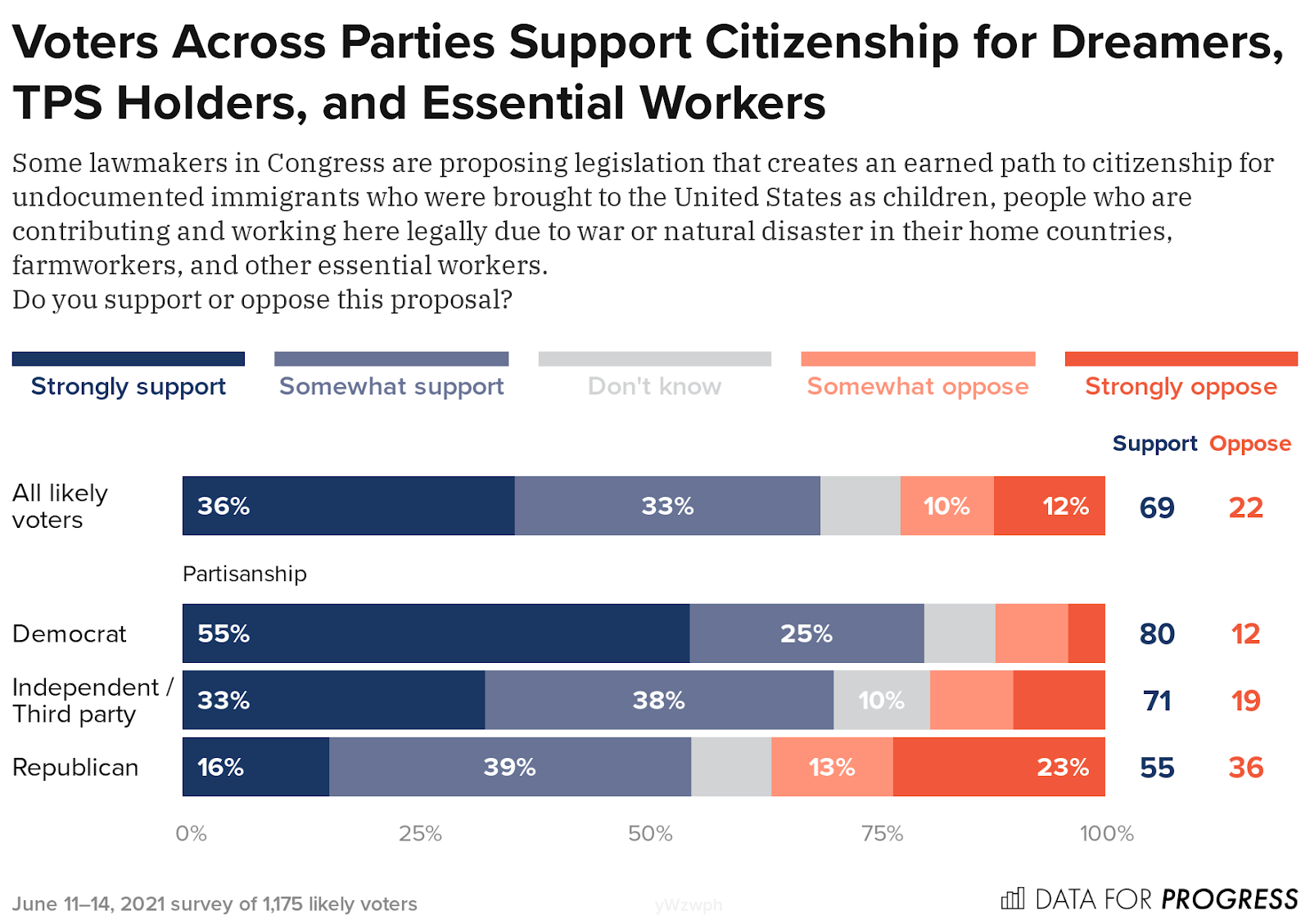Nine Years After DACA: Voters Across Parties Support a Path to Citizenship
By Evangel Penumaka
As we mark the ninth anniversary of DACA — the Deferred Action for Childhood Arrivals — the Senate Judiciary Committee is set to hold hearings on the Dream and Promise Act to create a permanent solution for immigrants whose lives have been in limbo. The legislation would provide a pathway to citizenship for immigrants who were brought to the U.S. as children and those who are here due to war or natural disaster in their home countries.
New Data for Progress polling of 1,175 likely voters nationally finds bipartisan support for legislation that would provide a pathway to citizenship for Dreamers and Temporary Protected Status (TPS) holders, farmworkers, and other essential workers with majority support from Democrats, Republicans and Independents.
By a 47-point margin (69 percent support - 22 percent oppose), voters support a pathway to citizenship for Dreamers, Temporary Protected Status (TPS) holders, farmworkers, and essential workers. Importantly, this legislation holds overwhelming bipartisan support. Democratic and Independent likely voters enthusiastically support a pathway to citizenship at 80 percent and 71 percent, respectively. We also find Republicans support the legislation by a 19-point margin.
For nearly a decade, DACA has provided landmark protections and opportunities for Dreamers who call this country their home. There is, however, an urgent need for a permanent solution to secure the future of thousands of immigrants. We need our leaders to do everything in their power to ensure that legislation for a pathway to citizenship — supported by voters across parties — becomes law.
Evangel Penumaka (@evangelpenumaka) is a polling analyst at Data for Progress.
Survey Methodology:
From June 11 to 14, 2021, Data for Progress conducted a survey of 1,175 likely voters nationally using web panel respondents. The sample was weighted to be representative of likely voters by age, gender, education, race, and voting history. The survey was conducted in English. The margin of error is ±3 percentage points.
Toplines linked here.

